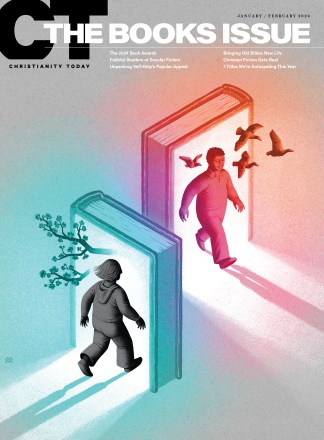People who write books love the moment when their books are unveiled before the watching world. They’ve labored, hard—thinking and rethinking, writing and revising, dreaming of the day when that folder of half-finished Word files emerges as something holdable and readable, complete with cover art, numbered pages, and a barcode.
And so they celebrate. Some authors host launch parties, gathering friends, fans, and members of publishing teams. Some record themselves unboxing early batches of finished copies. Some document first encounters with their handiwork on the shelves of a library or brick-and-mortar bookstore.
Yet if books are occasions for rejoicing, they are often monuments to suffering as well. Many wouldn’t exist if not for some pain or injustice either endured directly or witnessed in others. (I was struck, while reviewing this year’s CT Book Awards, that both winners in our Christian-living category deal frankly with the agony of mental illness.) Even for writers tackling happier subjects, the ordeal of getting words on paper can be physically taxing and emotionally scarring.
Books, one might say, frame a wide spectrum of human experience, spanning triumph, tragedy, and everything in between. They are as expansive, varied, and unpredictable as life itself. Surely some of them shouldn’t be handled without a measure of fear and trembling.
Hopefully, this issue of CT gestures toward the fullness of what books can do, say, and be in the lives of Christian readers. In keeping with recent tradition, we’re devoting ample space to the Book Awards themselves, which commend some of the previous year’s top titles in areas like theology, discipleship, apologetics, and missions. Other features analyze the popularity of self-help books among Christian audiences, survey the changing landscape of Christian fiction, and—speaking of fiction—mount a case for appreciating contemporary literature (p. 60).
And pardon the unseemly gloating, but I’m positively stoked to try out an idea I’ve entertained for years: asking a group of renowned Christian authors to throw off the fetters of professional obligation, ascend to a realm of pure creative freedom, and sketch out a theoretical book they’d love to write—but probably never will.
As you enjoy this issue, thank God for the gift of books. Say a prayer for everyone involved in making them. And keep on reading.
Matt Reynolds is CT’s senior books editor.










